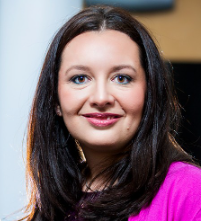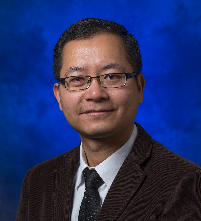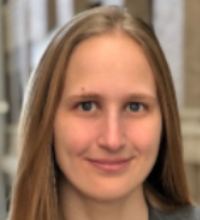MSACL 2025Montr?al Sept 21-26 |
Agenda
|
Agenda (Preliminary) - View Program
Wednesday, September 24
Time |
Sessions |
||||||||||||||||||
|---|---|---|---|---|---|---|---|---|---|---|---|---|---|---|---|---|---|---|---|
1830 |
Registration + Help Desk Location: Foyer, Conference Level
|
||||||||||||||||||
825 |
Industry Workshop : Waters Corporation Location: Montreal 4
|
||||||||||||||||||
825 |
Industry Workshop : Agilent Technologies Location: Montreal 5
|
||||||||||||||||||
825 |
Industry Workshop : Phenomenex Location: Montreal 6-8
|
||||||||||||||||||
915 |
Coffee Roundtables Location: St Laurent (Exhibits)
Table TBA: Chromsystems : Can automated LC-MSMS workflows hold the key to enhancing diagnostic efficiency and reliability?
Presenter TBD
Table TBA: Anything new about the EU-IVDR?
Michael Vogeser
The IVDR has been in a gradual introduction process in the European Union since 2017. In particular, requirements with regard to in vitro diagnostic devices that are manufactured in healthcare facilities and used exclusively there are the subject of continued discussion. It would be desirable for the upcoming IVDR evaluation process to result in changes to the law that would provide the laboratories concerned with clarity and relief in this area. It is very important that the community of affected diagnostic laboratories is heard and taken into account in the EU processes. This should be seen as a shared task.
Table TBA: Patient Centric Remote Sampling for Clinical Diagnostics– How do we overcome the regulatory hurdles?
Russ Grant, Dajana Vuckovic, Shelley Hossenlopp
Numerous technologies are now commercially available that facilitate the collection of human blood samples in locations away from the clinical setting. This approach is termed patient centric sampling, or microsampling and can involve the collection of samples from a finger stick, or from elsewhere on the body. The samples can be dried or liquid and are often a smaller volume than those obtained by traditional phlebotomy.
The use of these approaches potentially enables samples to be collected from currently underserved communities (pediatric, elderly, remote areas, etc). Furthermore, the approach may enable more regular sampling of individuals to be performed and facilitates choice for the patient about how and where samples will be collected. These technologies also have the potential to overcome the discomfort, pain and fear that is encountered by many when collecting samples by traditional phlebotomy.
However, there are challenges around the regulatory status of the sampling devices and assays developed for clinical diagnostic purposes using these technologies. Participants of this workshop will take part in a facilitated discussion on what the regulatory challenges are to the adoption of these technologies. Different regulatory frameworks and quality systems will be discussed relative to EU (Medical Device Regulation + In Vitro Diagnostic Regulation), USA (FDA class 1 & 2 test “systems”) and Canada (Medical Device Directorate, ICH M10). Exemplars will be discussed relative to current products and workflows that have achieved regulatory approval in these jurisdictions. Participant discussion will then focus on how these barriers may be overcome and what future activities might be required to enable this.
Table TBA: Thebaine Testing to Improve Clinical Interpretation of Drug Testing Results
Nguyen Nguyen
Thebaine, a naturally occurring alkaloid in opium poppy, serves as a precursor in the synthesis of medically relevant opioids such as oxycodone and naloxone. Despite its limited direct pharmacological effects, thebaine is a critical biomarker for distinguishing poppy seed ingestion from illicit opioid use. Understanding the nuances of thebaine testing is essential for clinicians, toxicologists, and forensic professionals, particularly when interpreting complex cases involving drug testing.
This roundtable will cover the biochemical properties of thebaine, the analytical methodologies employed (with a focus on LC-MS/MS for high-precision quantification), and the clinical implication of its detection. Emphasis will also be placed on standardizing sample preparation, utilizing deuterated internal standards, and implementing quality control to ensure reliable results.
Time permitting, we may discuss case studies to illustrate the differentiation between dietary exposure and opioid abuse, highlighting challenges in interpreting results within diverse patient populations. Participants will gain practical insights into integrating thebaine testing into their workflows and leveraging this knowledge to improve diagnostic accuracy, enhance patient care, and support legal decision-making.
Table TBA: Starting an In-House Clinical Laboratory Scientist//Medical Technologist Training Program
Stacey Beal
The purpose of this roundtable is to explore the feasibility and benefits of starting a Clinical Laboratory Scientist (CLS)/Medical Technologist (MT) training program at your laboratory. With an increasing demand for skilled professionals in clinical laboratory science, establishing an in-house training program can help address staffing shortages, ensure a steady pipeline of qualified personnel, and elevate the quality of services provided to patients. This discussion will focus on the steps needed to create the program, including aligning with accreditation standards and developing a curriculum that meets clinical and laboratory needs. We will also cover the necessary resources such as faculty, clinical mentors, and equipment, along with a timeline for program implementation. Additionally, we will address the potential challenges, such as securing funding, recruiting qualified students and instructors, and ensuring that the program meets the required certification and licensure standards. The discussion will provide insights on how a CLS/MT training program can benefit your laboratory, enhance the professional development of staff, and ultimately improve patient outcomes by providing a highly trained, dedicated workforce.
Table TBA: Automation and Integration of MS with Standard Pathology Lab Workflows
Peggi Angel
Table TBA: Effective Reviewing and Appropriate Author Responses for Submitted Manuscripts
Tim Garrett
|
||||||||||||||||||
915 |
Waters Petite Suite Location: Westmount 1
|
||||||||||||||||||
1030 |
Poster Session #1 Location: St Laurent (Exhibits)
|
||||||||||||||||||
1020 |
Poster Tours Location: St Laurent (Exhibits)
|
||||||||||||||||||
1130 |
Plenary Lecture Location: Montreal 4-5
|
||||||||||||||||||
1330 |
Lunch Location: St Laurent (Exhibits)
|
||||||||||||||||||
1330 |
Poster Session #2 Location: St Laurent (Exhibits)
|
||||||||||||||||||
1430 |
Scientific Session 1 TBA Location: Montreal 1-2
|
||||||||||||||||||
1430 |
Scientific Session 1 TBA Location: Montreal 3
|
||||||||||||||||||
1430 |
Scientific Session 1 TBA Location: Montreal 4
|
||||||||||||||||||
1430 |
Scientific Session 1 TBA Location: Montreal 5
|
||||||||||||||||||
1430 |
Scientific Session 1 TBA Location: Montreal 6-8
|
||||||||||||||||||
1445 |
Intermission Location: Foyer, Conference Level
|
||||||||||||||||||
1545 |
Scientific Session 2 TBA Location: Montreal 1-2
|
||||||||||||||||||
1545 |
Scientific Session 2 TBA Location: Montreal 3
|
||||||||||||||||||
1545 |
Scientific Session 2 TBA Location: Montreal 4
|
||||||||||||||||||
1545 |
Scientific Session 2 TBA Location: Montreal 5
|
||||||||||||||||||
1545 |
Scientific Session 2 TBA Location: Montreal 6-8
|
||||||||||||||||||
1645 |
Happy Hour Location: St Laurent (Exhibits)
|
||||||||||||||||||
1815 |
Discussion Group : LDTs in Flux : Will Evolving Regulations Enhance or Complicate Laboratory Practices? Location: Montreal 1-2
Lab Developed Test (LDT) regulation is a complex and ever-evolving area of clinical laboratory practice. This interactive workshop, led by members of the MSACL Compliance and Accreditation Committee, will provide an in-depth exploration of the current state of LDT regulation. Participants will gain insight into the historical context of LDT oversight, how regulatory frameworks have developed over time, and the specific requirements set forth in the FDA’s final rule, particularly focusing on stages one through three of its implementation. The session will include interactive break-out discussions, allowing attendees to share their experiences and challenges in navigating the regulatory landscape. A key component of the workshop will be the emphasis on quality management systems. Furthermore, the workshop will offer a comparative analysis of the new FDA regulations alongside existing requirements, standards and guidelines, including those from the College of American Pathologists (CAP), International Organization for Standardization (ISO), and Clinical and Laboratory Standards Institute (CLSI). By the end of the session, participants will have a deeper understanding of the regulatory environment surrounding LDTs and practical strategies for achieving compliance while optimizing laboratory quality management practices. Syllabus
Objectives
|
||||||||||||||||||
1815 |
Discussion Group Location: Montreal 3
|
||||||||||||||||||
1815 |
Discussion Group Location: Montreal 4
|
||||||||||||||||||
1815 |
Discussion Group Location: Montreal 5
|
||||||||||||||||||
1815 |
Discussion Group Location: Montreal 6-8
|
||||||||||||||||||
1815 |
Discussion Group Location: Westmount 6
|
||||||||||||||||||
2100 |
Dinner Location: Your Choice
Your choice! |
||||||||||||||||||
2330 |
MSACL Hospitality Lounge Location: Salon Ville-Marie, Hotel Level
|
||||||||||||||||||











